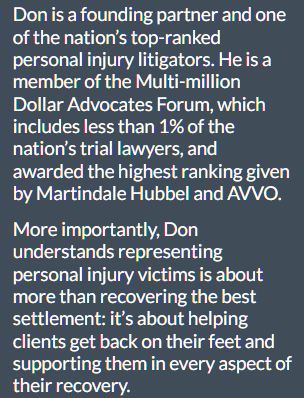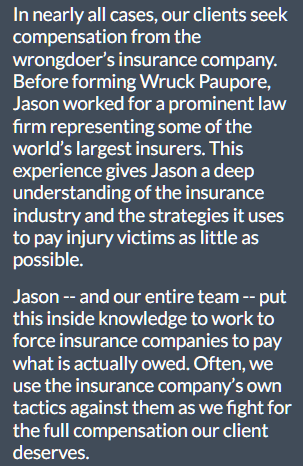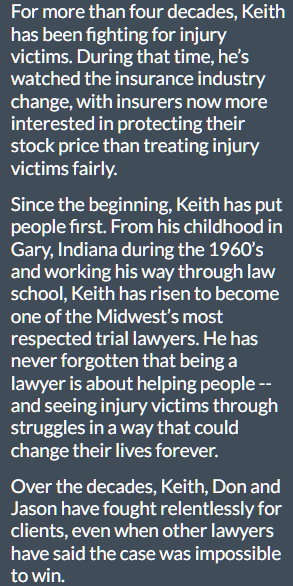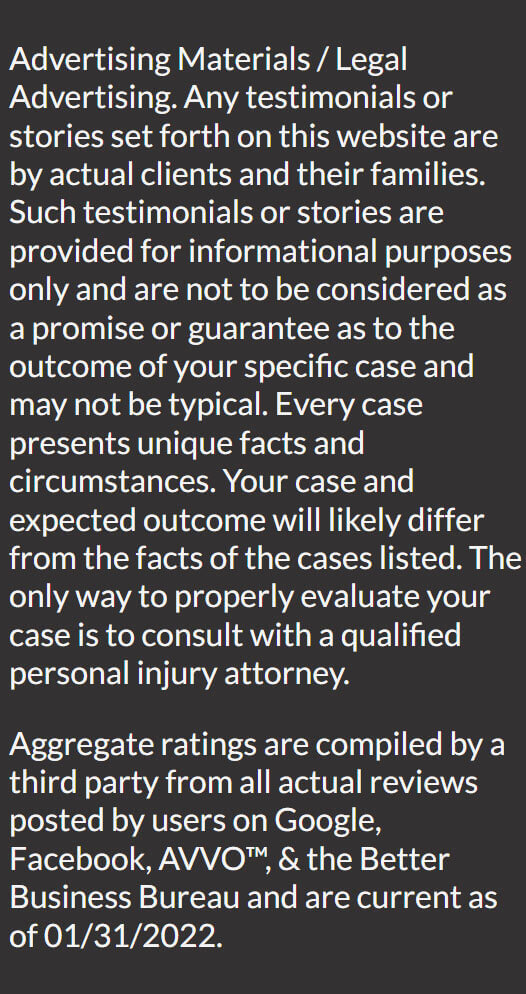




When car accident victims are uninsured, their recoveries can get complicated. Under Indiana’s “no pay, no play” rules, uninsured motorists face possible restrictions on their recoveries. Misunderstanding these rules might also affect your understanding of your case’s value and if you can even file a claim.
No pay, no play only stops you from getting non-economic damages if you have a previous citation for driving without insurance. If you don’t, you can still recover compensation for non-economic harms even if you don’t have insurance. There are other exceptions to non-economic damages, too, like when at-fault drivers intentionally hit uninsured drivers or get convicted of crimes related to accidents. Even if you can’t get non-economic damages as an uninsured motorist, you can still recover all economic damages, like for medical bills and lost wages, so still consider a claim.
For a free case assessment from our Indiana car accident lawyers, call Wruck Paupore at (219) 322-1166.
Indiana is one of several states with “no pay, no play” rules. Car accident victims who do not comply with insurance mandates might see their recoveries limited, even if they aren’t at fault.
While Indiana doesn’t block victims’ claims entirely, it does bar non-economic damages in certain cases. Under I.C. § 34-30-29.2-3(a), uninsured drivers with previous violations for driving without insurance cannot claim non-economic damages.
Even after fatal accidents, families can’t get non-economic damages if victims were uninsured and had previous violations.
Minimum liability coverage amounts in Indiana are $25,000 for bodily injury per person, $50,000 for bodily injury per accident, and $25,000 for property damage per accident. This insurance covers injuries caused by the policyholder.
Non-economic damages only refer to intangible losses like physical impairment, mental anguish, loss of enjoyment, and others listed under § 34-30-29.2-2(a). Non-economic damages do not include expenses like medical costs and lost wages.
Victims can still get all economic damages, even if they are uninsured with previous violations. Indiana’s no pay, no play rules are not as strict as some other states that block lawsuits entirely.
There are several exceptions to Indiana’s no pay, no play rules, allowing full recoveries, even if victims were uninsured with previous citations.
For example, under § 34-30-29.2-4(a), victims under 18 with previous citations may recover non-economic damages from liable parties. Furthermore, if a minor died in a fatal car accident, their family can claim non-economic damages.
Indiana’s no pay, no play rules do not apply when at-fault drivers are convicted of crimes related to your crash. Additionally, your lack of insurance or previous violations won’t bar you from getting non-economic damages if the driver intentionally hit you, according to § 34-30-29.2-1(b). The same is true when drunk drivers hit uninsured drivers.
Passengers injured in accidents when driven by uninsured motorists do not need to worry about no pay, no play rules; they can get full damages because they are not the ones driving without insurance.
Being in an accident with no insurance means you might be ticketed for the crash. If this is your first ticket, it doesn’t stop you from claiming non-economic damages, but your ability to recover for future crashes is limited. Secure insurance as soon as you can to prevent Indiana’s no pay, no play rules from hurting you in the future.
Even when victims’ damages are limited to economic damages, they should still pursue claims. Even relatively minor injuries still need medical treatment. One visit to the emergency room might cost hundreds or thousands of dollars, and you should be paid back for this.
Serious injuries might stop victims from working, too, and you can still file a claim for lost wages as an uninsured motorist. You can also get future economic damages for upcoming medical procedures or lost wages.
To get compensation, our Indianapolis car accident lawyers can collect evidence that helps us prove liability, such as eyewitness statements, photos, police reports, and accident reconstruction expert reports.
Even if Indiana’s no pay, no play laws don’t limit your recovery, you could face challenges as an uninsured motorist. The at-fault driver might try to use “comparative fault” rules against them.
While the negligent driver can’t argue your lack of insurance makes you negligent, they might try to point to other reasons why you share fault. Since Indiana is a comparative fault state, victims’ recoveries are lowered proportionally to their liability. If victims’ negligence outweighs the other party’s, they’re blocked from getting any damages.
Comparative negligence might threaten victims’ recoveries in any car accident case, even if no pay, no play laws restrict their recoveries to only economic damages. If the at-fault driver successfully argues that you contributed, you might only get some of your economic damages.
Drivers might argue uninsured motorists were speeding, failed to signal, or were driving without their headlights, making victims partially liable for their injuries.
We can anticipate possible comparative fault arguments early on when reviewing your case. We can address arguments with evidence that directly undermines them, like eyewitness statements.
After accidents with uninsured drivers, at-fault parties might try to intimidate them or misconstrue Indiana’s no pay, no play rules, telling them that they can’t get compensation. Victims who take this at face value might miss the two-year filing deadline for their claims or run into other issues, such as failing to preserve evidence.
Discuss your case for free with our Indiana personal injury lawyers when you call Wruck Paupore at (219) 322-1166.
Don is a founding partner and one of the nation’s top-ranked personal injury litigators. He is a member of the Multi-million Dollar Advocates Forum, which includes less than 1% of the nation’s trial lawyers, and awarded the highest ranking given by Martindale Hubbel and AVVO.
More importantly, Don understands representing personal injury victims is about more than recovering the best settlement: it’s about helping clients get back on their feet and supporting them in every aspect of their recovery.

In nearly all cases, our clients seek compensation from the wrongdoer’s insurance company. Before forming Wruck Paupore, Jason worked for a prominent law firm representing some of the world’s largest insurers. This experience gives Jason a deep understanding of the insurance industry and the strategies it uses to pay injury victims as little as possible.
Jason -- and our entire team -- put this inside knowledge to work to force insurance companies to pay what is actually owed. Often, we use the insurance company’s own tactics against them as we fight for the full compensation our client deserves.

For more than four decades, Keith has been fighting for injury victims. During that time, he’s watched the insurance industry change, with insurers now more interested in protecting their stock price than treating injury victims fairly.
Since the beginning, Keith has put people first. From his childhood in Gary, Indiana during the 1960’s and working his way through law school, Keith has risen to become one of the Midwest’s most respected trial lawyers. He has never forgotten that being a lawyer is about helping people -- and seeing injury victims through struggles in a way that could change their lives forever.
Over the decades, Keith, Don and Jason have fought relentlessly for clients, even when other lawyers have said the case was impossible to win.


© 2025
Terms of Service | Privacy Policy | Resources | Blog | Sitemap

© 2022 Wruck Paupore PC
Terms of Service | Privacy Policy